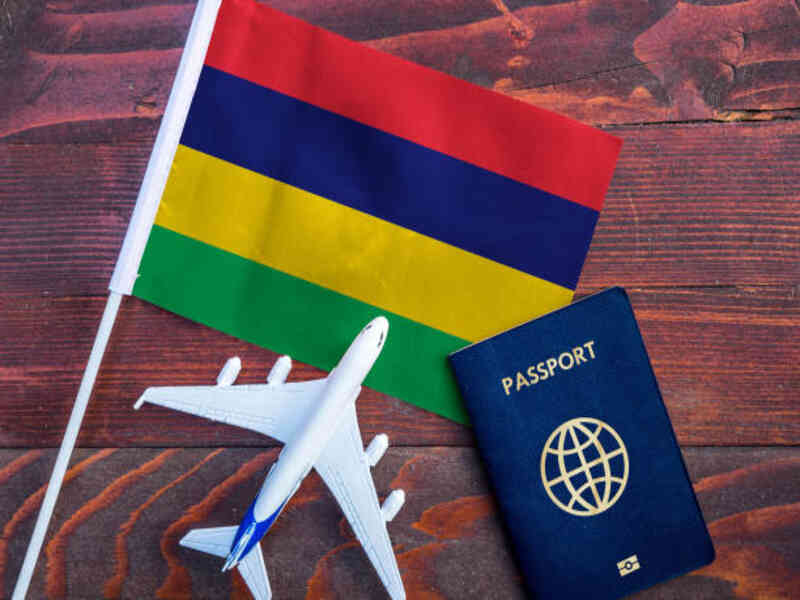Obtaining a travel visa for Mauritius is an essential step for travelers looking to explore this stunning island paradise in the Indian Ocean. Known for its beautiful beaches, vibrant culture, and rich history, Mauritius attracts visitors from around the world. To ensure a hassle-free journey, understanding the Mauritius visa application process is crucial. Whether you’re traveling for leisure, business, or family visits, knowing the requirements and steps involved will help streamline your experience.
This step-by-step guide will provide you with detailed information on the necessary documentation, application procedures, and specific requirements for various nationalities, including the option of visa on arrival for Indian citizens. By following this guide, you can ensure that your visa application process is smooth and efficient, allowing you to focus on planning your adventures in this beautiful destination.
Here are some Step-by-Step Guides to Obtaining Your Mauritius Travel Visa
1. Check Your Passport Validity
The first step in obtaining a travel visa for Mauritius is to ensure your passport is valid. Your passport must have at least six months of validity remaining from your planned date of entry into Mauritius. Additionally, it should contain blank visa pages to accommodate the visa stamp. If your passport is nearing expiration, consider renewing it before applying for your visa.
2. Complete the Visa Application Form.
Next, you will need to fill out a visa application form. This form can usually be obtained from the Mauritius Embassy or Consulate in your country, or it may be available on their official website. Ensure that you complete the form accurately, providing all the required information. Incomplete or incorrect applications can lead to delays or rejections.
3. Gather Required Documents
Along with your completed application form, you’ll need to provide several supporting documents to strengthen your visa application. These include:
- Two passport-sized photos: These should meet the specific requirements set by the Mauritian authorities, such as size, background color, and recentness.
- Proof of Accommodation: You must provide evidence of where you will be staying during your visit. This could be a hotel booking confirmation, rental agreement, or invitation letter from a friend or relative residing in Mauritius.
- Proof of Sufficient Funds: You will need to demonstrate that you have enough financial resources to cover your expenses during your stay. This can include bank statements, pay slips, or proof of employment.
- Proof of Flight Ticket: A copy of your return or onward flight ticket is necessary to show your travel itinerary and intentions.
4. Consider Additional Requirements for Indian Citizens
If you are an Indian citizen, you have the advantage of obtaining a visa on arrival in Mauritius. This visa is valid for 60 days and does not require an advance application. However, you still need to meet certain conditions, such as having a valid passport, proof of accommodation, proof of funds, and a return flight ticket. This option offers convenience for those who prefer spontaneity in their travel plans.
5. Age and Background Check
To apply for a visa to Mauritius, you must be at least 18 years old. If you are under 18, your application must be submitted by a parent or guardian. Additionally, you should have no criminal record. Authorities may conduct background checks to ensure you meet this criterion. It is advisable to be transparent about your history, as any discrepancies can lead to visa denial.
6. Language Proficiency
Having basic language skills in English, Creole, or French can be beneficial during your stay in Mauritius. While it is not a strict requirement for visa approval, being able to communicate in one of these languages will enhance your experience and facilitate interactions with locals.
7. Travel Insurance
Although travel insurance is not mandatory for obtaining a visa to Mauritius, it is highly recommended. Travel insurance can provide coverage for unexpected events such as medical emergencies, trip cancellations, or lost luggage. It offers peace of mind, allowing you to enjoy your trip without worrying about unforeseen circumstances.
8. Submit Your Application
Once you have completed the application form and gathered all the necessary documents, you can submit your application to the nearest Mauritian embassy or consulate. If you are applying for a visa on arrival, ensure you have all the required documents ready to present upon entry into Mauritius.
9. Await Processing
After submission, processing times can vary. It’s advisable to apply for your visa well in advance of your intended travel date, allowing ample time for processing. Check with the embassy or consulate for specific timelines.
10. Prepare for Arrival
Once your visa is approved, double-check that all documents are in order before you depart. Upon arrival in Mauritius, you may be asked to present your visa, passport, and supporting documents to immigration officials. Be prepared for a smooth entry by having everything organized.
Conclusion
Obtaining your Mauritius visa is a straightforward process when you follow the necessary steps and gather the required documents. By ensuring your passport is valid, completing the visa application form accurately, and providing essential supporting documents, you can increase your chances of a successful application. For Indian citizens, the option of a visa on arrival adds an extra layer of convenience, allowing for spontaneous travel plans without the need for prior application.
Ultimately, being well-prepared and informed about the visa process will lead to a more enjoyable experience in Mauritius. Once your Mauritius visa is secured, you can fully immerse yourself in the island’s breathtaking landscapes, rich culture, and welcoming atmosphere, making your trip unforgettable. With this guide, you’re now equipped to embark on your journey to this tropical paradise with confidence.






More Stories
What are the Best Honeymoon Destinations in the United States
Qais Island Beauty That Will Leave You in Awe
Hajj and Umrah Packages: Your Complete Spiritual Journey Guide